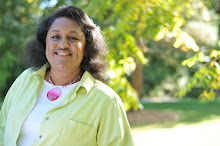
When your child is diagnosed with Attention Deficit Hyperactivity Disorder (ADHD), develop partnerships with doctors, schools and daycare providers. They are all vital to your child’s future, especially when he or she has ADHD.
By developing partnerships, you will increase your child’s success and you will find the partnerships mutually beneficial. Partnerships can be challenging to develop, especially when the diagnosis is new or not even known yet. Use these tips to get started and you will soon reap the benefits of your new partnerships.
Doctors
Before you go to see any doctor regarding concerns you have regarding inattention, hyperactivity or impulsivity, do your homework. Keep a journal for at least a week to note the challenges and successes that you see. Research ADHD from reliable sources like www.CHADD.org, www.Help4ADHD.org or www.cdc.gov. Develop a list of questions that you have to make sure you do not forget anything while you are at a doctor’s appointment.
Depending on whether your child is diagnosed with ADHD or you are exploring the possibility of ADHD, your questions and your focus will be different. If a diagnosis has not been made, be sure to ask about other medical issues that could be causing the concerns. If you are considering medication, ask about how it works and what side effects can occur. If your child is struggling with his or her emotions, you may want to ask for a referral to a therapist. If he or she is having trouble focusing on school work, you can ask for a referral to a coach. Take your time to really brainstorm your list of questions. Above all else, remember that the doctor is your partner and you both have the shared goal of helping your child.
Schools and Day Care
When talking to your child’s teacher, principal or other support professional at their school, remember that their level of ADHD knowledge will vary. It is good to start with asking for their suggestions of what assistance and accommodations will help your child. If they do not have a lot of ADHD information or experience, they will likely need to rely on you for information. Share resources that you find helpful and also share techniques that work for you at home.
In addition, you will want to agree early to a communication method that everyone can support. For younger children, a daily checklist is usually effective. As children get older, email updates and perhaps a weekly checklist can be help. Teachers are usually happy to participate, but in some instances you may need to enlist the help of a principal or other school official. Your child may qualify for an Individualized Education Plan or a 504 Plan. You can find more information about those at www.Help4ADHD.org and through CHADD.
What’s Next?
There are endless ways that you can develop partnerships with the adults who work with and support your child on a daily basis. Consider these ideas as thought starters and brainstorm to develop your own. Add them to the comments here or send me an email to Laura@MyAttentionCoach.com. Let us know your thoughts!
Laura Rolands partners with adults, students, families and groups to establish client directed action plans and accomplish clear goals . Her clients have either been diagnosed with ADD or ADHD or are facing other attention-related challenges.
Join her on August 23, 2010 as she interviews Jodi Sleep-Triplett about Empowering Youth with ADHD. Learn more at www.MyAttentionCoach.com.





No comments:
Post a Comment